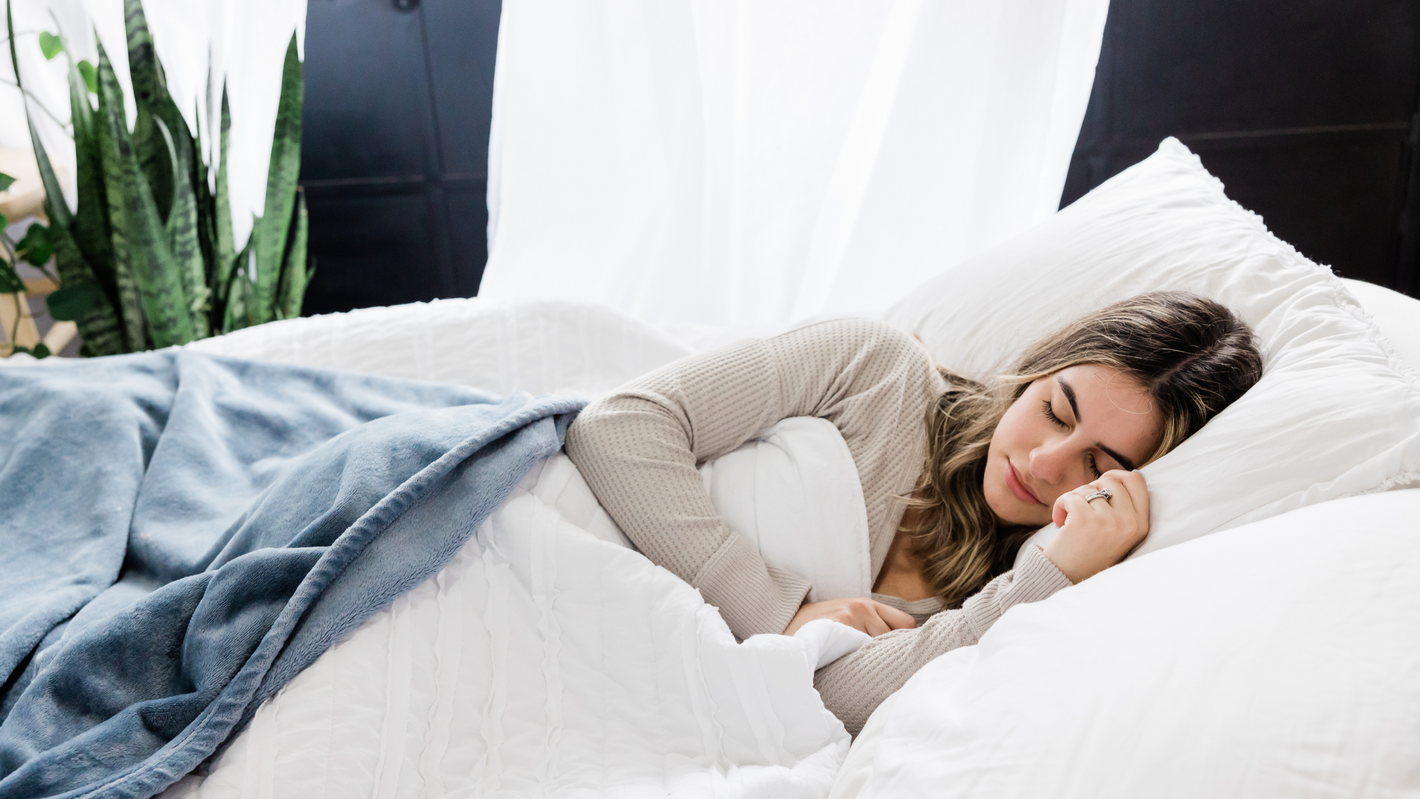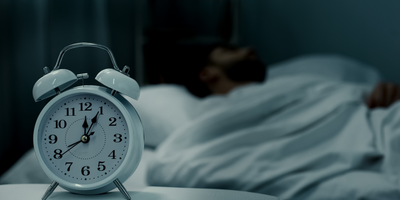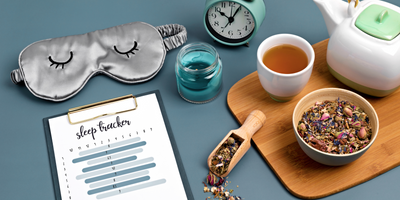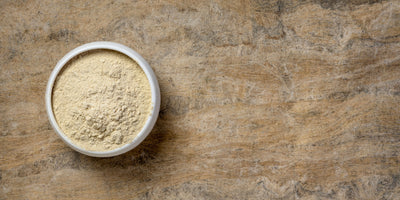
Are Natural Sleep Aids Effective?
Sleep is an essential part of human life, contributing significantly to our overall health and well-being. Insomnia and sleep disorders have become prevalent in modern society, with many individuals struggling to achieve adequate sleep quality and deep sleep. As a result, the demand for sleep aids has risen, prompting people to explore various solutions, including natural sleep aids. This article provides a comprehensive analysis of the key factors that impact the effectiveness of natural sleep aids, including their benefits, limitations, and the challenges associated with different approaches. By discussing the tradeoffs involved in balancing these factors, we aim to present an informative and objective perspective on the topic.
Natural Sleep Aids
Natural sleep aids are substances, herbs, or practices that help promote sleep without the use of prescription or over-the-counter medications. Some of the most common natural sleep aids include:
- Melatonin: A hormone naturally produced in the body that regulates sleep-wake cycles. Melatonin supplements are available over-the-counter and can help improve sleep quality, particularly for individuals with irregular sleep schedules or jet lag.
- Valerian root: An herbal supplement that has been used for centuries to promote relaxation and sleep. Some studies suggest that valerian root may help individuals fall asleep faster and improve sleep quality.
- L-Glycine is an amino acid with a number of important functions in the body, including influencing sleep in a number of ways. When taken before bedtime, it promotes good quality sleep so that you wake up in the morning feeling refreshed, energised and ready to be active.
- Ashwagandha Root Powder is a plant extract that is most recognised for its ability to modulate stress and anxiety. Various human trials have also demonstrated its capacity to reduce insomnia and improve sleep quality. Ashwagandha has calmative effects on the central nervous system. It also has antioxidant and anti-inflammatory activity, and may help to reduce inflammation in the brain.
- Jujube Fruit Powder also known as Ziziphus, has been used for thousands of years in traditional Chinese medicine for anxiety and sedation. The phytochemicals in jujube trigger changes to neurotransmitters which make it easier to fall asleep and stay asleep.
- L-Theanine is an amino acid found in tea leaves. It helps improve sleep quality by acting as a calmative on the central nervous system to promote relaxation and reduce anxiety L-theanine influences several neurotransmitters and promotes relaxing brain activity.
- Hops Flower Powder comes from the female flowers from the hop plant that have a long history of use in herbal medicine. Hops has been found to be beneficial for sleep due to the calmative effects as well as being able to lower your body temperature, which brings about drowsiness and begins the body's sleep process.
- Lemon Balm Herb Extract is a herb from the mint family. It helps sleep by reducing stress and anxiety, promoting a sedative effect and feeling of calmness.
- Magnesium is an essential mineral that has beneficial effects on sleep due to its calming and relaxing effects on the nervous system and muscular system. We’ve included two forms, magnesium glycinate and magnesium L-threonate, the best forms for promoting quality sleep.
- L-Tryptophan is an amino acid which the body uses to make serotonin and melatonin, the chemical which then can be made into melatonin production, the hormone responsible for making you tired and drowsy.
- Apigenin is a bioflavonoid compound that is found in a wide variety of plants and herbs. It is the active ingredient in chamomile tea responsible for its sleep improving benefits. At therapeutic doses, it offers anxiety reducing, relaxing and sedative effects.
- Zinc is an essential mineral our body cannot make. The consumption of zinc has been shown to increase the amount and quality of sleep in humans. It is required for optimal melatonin production, the hormone responsible for making you tired and drowsy.
Insomnia and Sleep Disorders
Insomnia is a common sleep disorder characterized by difficulty falling asleep, staying asleep, or waking up too early, resulting in poor sleep quality or quantity. Insomnia can be either acute or chronic, depending on the duration of symptoms. Sleep disorders, on the other hand, encompass a wide range of conditions that disrupt normal sleep patterns, including sleep apnea, restless leg syndrome, and narcolepsy.
Both insomnia and sleep disorders can significantly impact an individual's quality of life, leading to daytime fatigue, impaired cognitive function, and increased risk of developing chronic health conditions. The effectiveness of natural sleep aids in treating insomnia and sleep disorders depends on the underlying cause, severity of symptoms, and the individual's response to the treatment.
Sleep Quality and Deep Sleep
Sleep quality refers to how well a person sleeps, taking into account factors such as sleep duration, sleep onset latency (time it takes to fall asleep), and the number of awakenings during the night. Deep sleep, or slow-wave sleep, is a crucial stage of the sleep cycle that allows the body to repair and rejuvenate itself. Adequate deep sleep is essential for optimal cognitive and physical functioning.
Natural sleep aids can help improve sleep quality by promoting relaxation, reducing anxiety, and regulating sleep-wake cycles. However, their effectiveness in increasing deep sleep varies depending on the individual and the specific sleep aid used.
Balancing Factors and Tradeoffs
When considering natural sleep aids, it's essential to weigh the benefits against the potential drawbacks. Some of the key tradeoffs to consider include:
- Safety: Natural sleep aids are generally considered safe for short-term use, with fewer side effects compared to prescription sleep medications. However, some natural sleep aids can interact with other medications or cause allergic reactions, so it's crucial to consult with a healthcare professional before using them.
- Efficacy: While some natural sleep aids have shown promise in improving sleep quality and reducing insomnia symptoms, their effectiveness varies between individuals and may not be as potent as prescription medications. It's essential to manage expectations and understand that natural sleep aids may provide modest improvements in sleep.
- Duration of use: Many natural sleep aids are suitable for short-term use, but their long-term safety and effectiveness have not been extensively studied. Prolonged use of some natural sleep aids, like melatonin, may disrupt the body's natural sleep-wake cycle or lead to dependence.
- Underlying causes: Natural sleep aids may not address the root causes of insomnia or sleep disorders, such as sleep apnea, chronic pain, or anxiety. It's crucial to work with a healthcare professional to identify and treat the underlying issues contributing to sleep problems.
Challenges Associated with Different Approaches
Selecting the most effective natural sleep aid depends on individual needs, preferences, and circumstances. Some of the challenges associated with different approaches include:
- Identifying the most suitable sleep aid: With numerous natural sleep aids available, it can be challenging to determine which one is most appropriate for a specific individual. Factors such as personal preferences, medical history, and the severity of sleep issues play a significant role in selecting the most effective option.
- Dosage and administration: Finding the optimal dosage and method of administration for a natural sleep aid can be challenging, as the ideal amount may vary between individuals. Overdosing or underdosing may lead to diminished effectiveness or adverse side effects.
- Compliance: Consistently using a natural sleep aid as recommended is essential for achieving optimal results. However, maintaining compliance can be difficult, particularly for individuals who may be skeptical about the effectiveness of natural remedies or struggle to incorporate them into their daily routines.
Impact on Decision-Making
When deciding whether natural sleep aids are effective for an individual, it's essential to consider the factors discussed above and consult with a healthcare professional. The impact on decision-making may include:
- Assessing personal needs and preferences: Individuals should evaluate their specific sleep issues, lifestyle, and preferences when considering natural sleep aids. For example, individuals with mild insomnia may benefit from herbal teas, while those with more severe symptoms may require a more potent supplement like melatonin.
- Weighing the benefits and risks: Individuals must consider the potential benefits and drawbacks of using natural sleep aids, including their safety, efficacy, and duration of use. This process may involve consulting with a healthcare professional and conducting thorough research on the available options.
- Exploring alternative treatments: If natural sleep aids do not provide sufficient relief or if the underlying cause of sleep issues is not addressed, individuals should explore other treatment options, such as prescription medications, lifestyle modifications, or specialized therapies.
Conclusion
Natural sleep aids can provide a viable alternative to prescription medications for some individuals seeking to improve their sleep quality and address insomnia. However, it's crucial to approach the decision to use natural sleep aids with an informed and objective perspective. Taking into account personal needs, preferences, and the specific sleep aid's effectiveness is vital to achieving the desired results.
Moreover, it's essential to recognize that natural sleep aids may not be suitable for everyone and that their effectiveness may vary. Consulting with a healthcare professional, weighing the benefits and risks, and exploring alternative treatments when necessary, can help individuals make informed decisions about whether natural sleep aids are the right choice for their unique circumstances.
Ultimately, achieving better sleep quality and addressing sleep disorders requires a comprehensive approach that considers all potential treatment options and addresses the underlying causes of sleep issues. By taking a balanced and well-informed approach, individuals can make the best choices for their sleep health and overall well-being.








